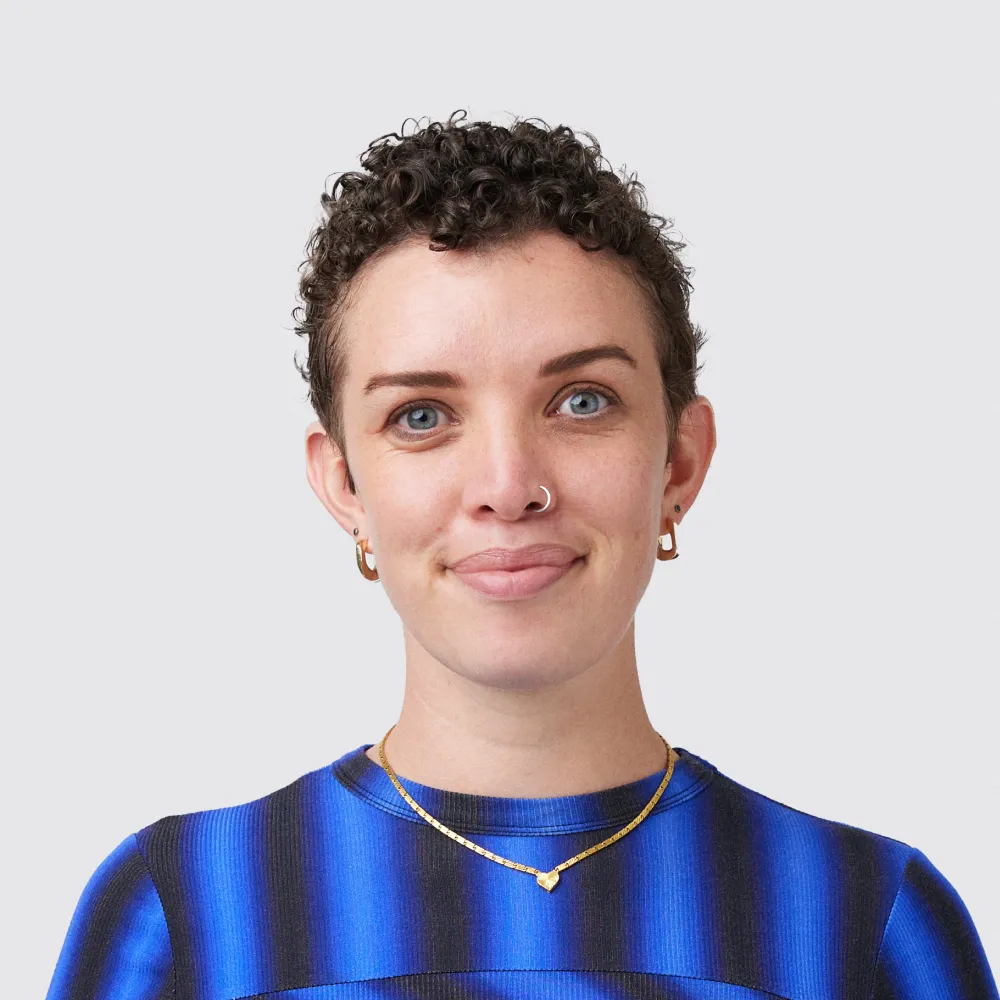Almost half of all Australians will face mental ill-health at some point in their lives. The Resilience Project has a mission to change this. They deliver emotionally engaging programs to schools, sports clubs and businesses, providing practical, evidence-based mental health strategies to build resilience and happiness.
We caught up with Maddie McMaster to chat about the process of building a new digital platform together.
Maddie McMaster, Head of Operations at The Resilience Project
Hayley Travis, Lead Producer at Today
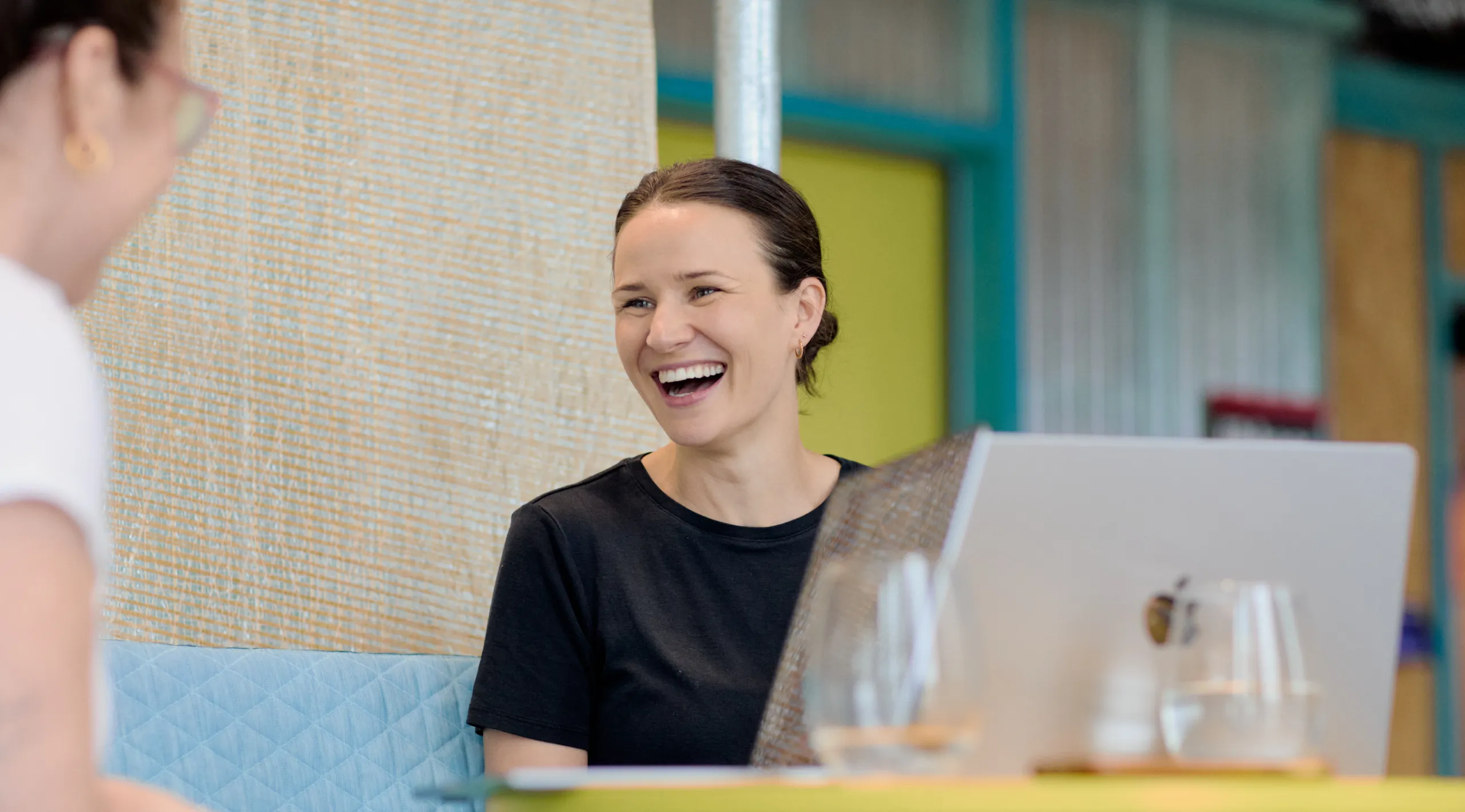
When somebody asks you what you do at the Resilience Project, how do you explain it?
Everything we do at the Resilience Project is really driven by our purpose, which is to inspire happiness and change lives.
We do this by teaching positive mental health strategies in schools, workplaces, early-year settings, and also with the general public through things like programs, digital content, resources, and events.
How did you first get into the education space?
Our founder, Hugh Van Cuylenburg, was a teacher and did a stint in India teaching in a remote community. He saw that they were the happiest kids he'd ever seen and wondered what they were doing that he could bring back to teach kids in Australia. He stayed in that community, watched what they were doing daily, and came back and did his postgraduate studies. In his research, he found there were years of research behind the simple things he saw every day in India that can build our mental wellbeing and resilience. These things were Gratitude, Empathy and Mindfulness.
Working with schools was the foundation of everything that we did from there. But it's now expanded beyond that to workplaces, and the general public, and Hugh has also worked with a number of elite sporting teams around the country.
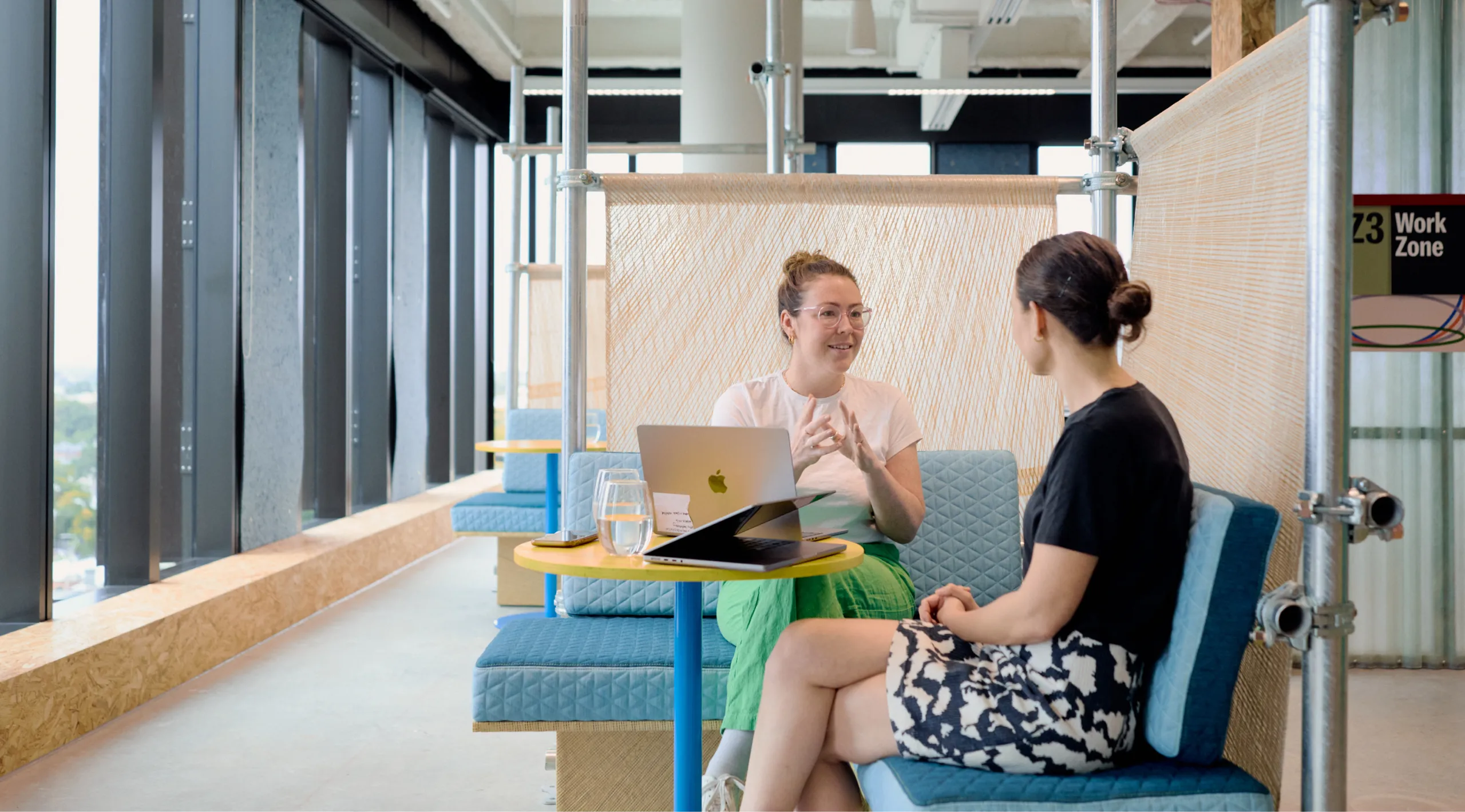
Why do you do what you do?
The statistics around mental health in Australia are really staggering. We know that nearly half of Australians will experience mental ill health in their lifetime. When it comes to our youth—another big reason why we do the work that we do in schools—About 1 in 3 kids, from primary and secondary school years, currently have high levels of depression, anxiety or both. And 1 in 5 secondary school kids are struggling with low life satisfaction.
It’s really confronting to hear those statistics. We're on a mission to change that. Everyone deserves to be happy.
About 1 in 3 kids, from primary and secondary school years, currently have high levels of depression, anxiety or both. And 1 in 5 secondary school kids are struggling with low life satisfaction.It’s really confronting to hear those statistics. We're on a mission to change that. Everyone deserves to be happy.
Maddie McMaster
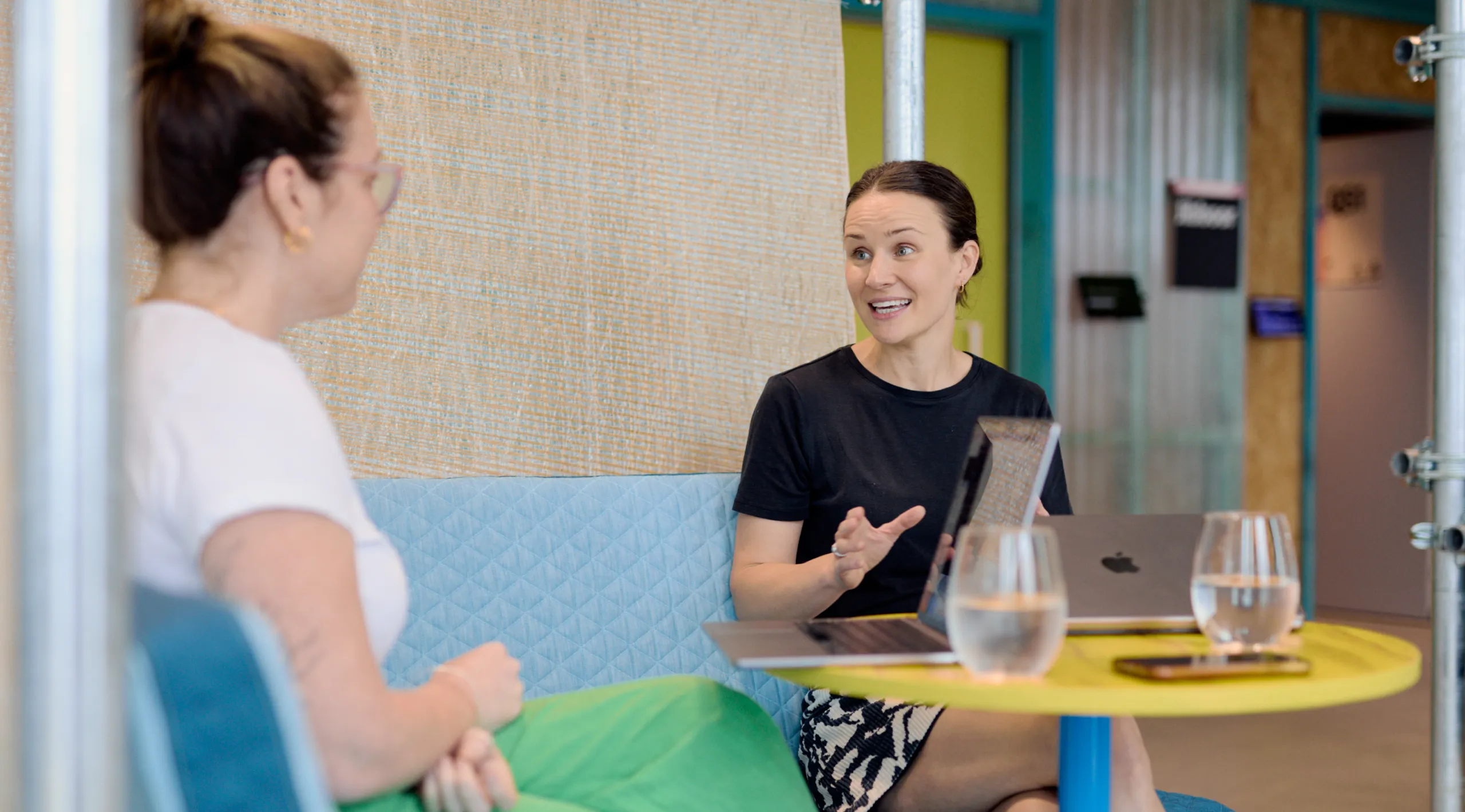
The Resilience Project and Today have worked together for a while now. Can you talk a little bit about the partnership that we've built over the last 18 months?
We have loved working with Today. I think what really drew us to work with Today in the first instance was the alignment of our values. As a fellow purpose-led organisation, Today just understood how important our purpose and the impact was for us. And that alignment was the core of everything that we did together.
The core project that we worked on was building a teaching hub platform for our school program. We know how stretched teachers are, and we wanted to build a platform that was intuitive, effortless, and an enjoyable experience for teachers to teach our program.
If it was an enjoyable experience for teachers, we knew in turn that would have an impact on the kids, the whole school community, and their experience of our program.
Looking at the impact of that this year, it's been rolled out to over 30,000 teachers at nearly 1,100 schools, and nearly 400,000 students around the country, which is pretty phenomenal.
Not only did we build this platform together, but also I think we were able to learn a lot from Today and your approach to development. I think every person we interacted with at Today was elite in their field, and it was such a privilege to be able to work with you and learn from you through that process as well.
We've now got a platform that's laid a really solid foundation for us to build on over time. But we've also been able to take that approach into other areas of our business and the way that we operate as well, which has been amazing.
Looking at the impact of that this year, it's been rolled out to over 30,000 teachers at nearly 1,100 schools, and nearly 400,000 students around the country, which is pretty phenomenal.
Maddie McMaster
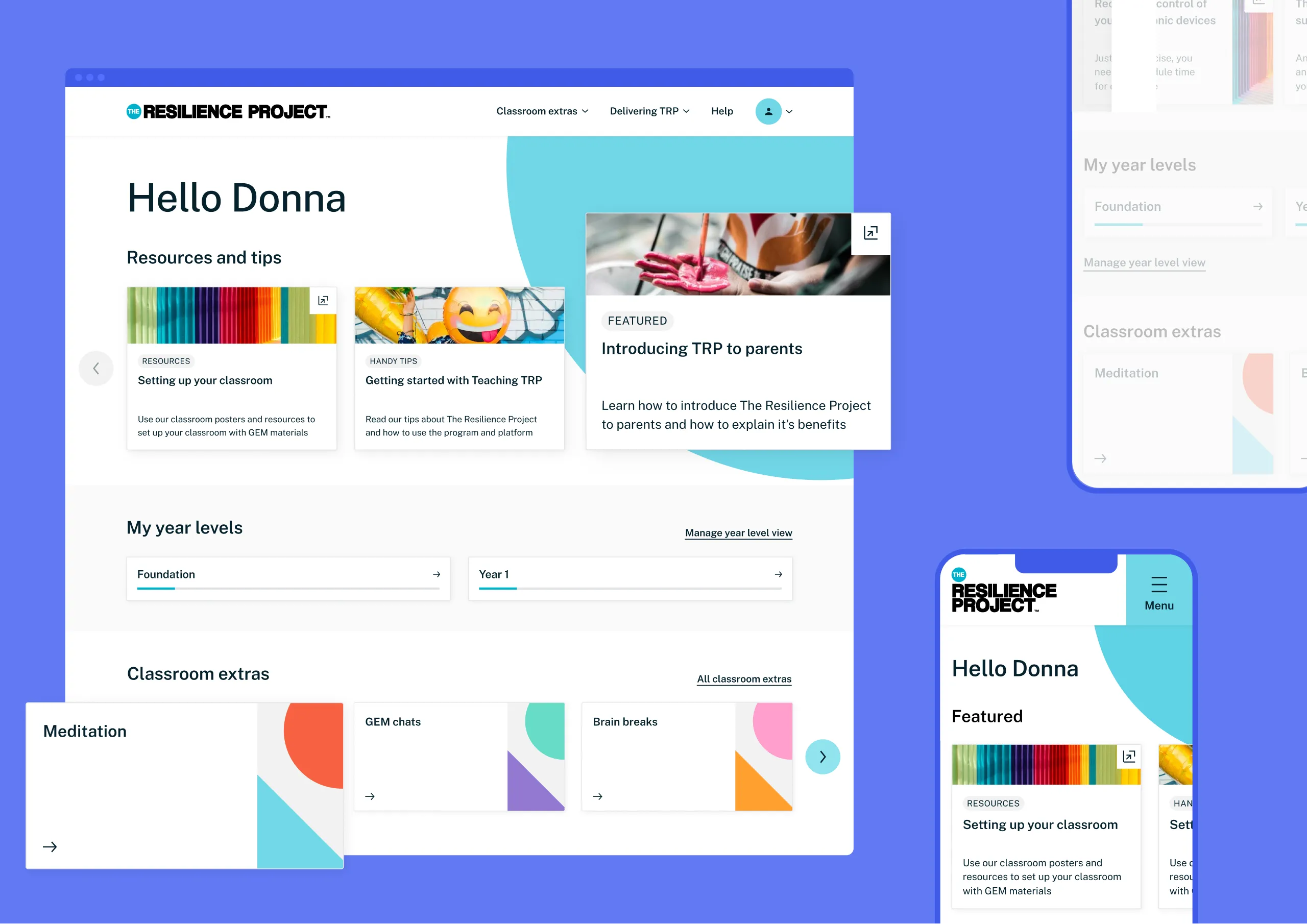
Are you able to talk a little bit about how you've expanded that approach into other areas?
We've grown rapidly across the past 10 years, and obviously, that's been amazing to experience the reach and impact that we have. I think working with Today gave us a new lens to look at things, and saw the opportunity to—at times—slow down.
With building our platform, for instance, you're taking the time to really listen to teachers and school leadership around the country to then build out that platform that was fit for purpose. It was a fantastic process to go through. Embedding more of that human-centred design into everything that we do has been key.
Another thing that we loved about working with you, was that you really empowered and enabled us to take the hub and the approach forward. This will not only allow us to reach more people, but to do so in a way that creates an amazing level of impact for them.
What is your dream opportunity for creating impact in the world? Do you see it in the education space or do you see it expanding outside of that core focus?
The core principles that we teach are gratitude, empathy and mindfulness. If you can practice something like gratitude actively, you start scanning the world for the positives. If you practice empathy, you're looking out for others more, and you're able to support others more. And if you practice mindfulness, then you're more aware of what's happening in the world around you.
It might seem overly simplistic, but if everyone was doing this stuff actively all the time—not just adults, but a whole generation—the ripple effect that can have across our communities and society as a whole is pretty powerful.
If we could get every home in Australia looking after their mental wellbeing every day, just like they’re looking after their physical wellbeing, that would be incredible. You’re unlikely to let your kids go a day without washing their hands or brushing their teeth - why should our mental wellbeing be any different?
If we could get every home in Australia looking after their mental wellbeing every day, just like they’re looking after their physical wellbeing, that would be incredible. You’re unlikely to let your kids go a day without washing their hands or brushing their teeth - why should our mental wellbeing be any different?
Maddie McMaster
Aside from influencing that next generation, what other changes do you see yourselves implementing to move towards that community-level change?
We work on the preventative end of mental health, and so certainly don't profess to be the cure to mental ill health.
And I think while this stuff might seem simple, it's not always easy. You have to work at it.
We all have a natural negative bias, so practising gratitude is something we need to do to rewire our brains. If you think about devices and how much they dominate our lives these days, we have to fight that urge and practise this stuff.
So I think that's the first challenge, we can't just do it once and assume that that's going to be it. We need to continue to work at it so that we can cope better during challenging times. By just having more conversations around mental health, we hope to remove some of the stigma that currently exists around it so that when, not if, people do face challenging times, they can actually feel comfortable to have those conversations and talk about it and seek help if they need it.
By just having more conversations around mental health, we hope to remove some of the stigma that currently exists around it so that when, not if, people do face challenging times, they can actually feel comfortable to have those conversations and talk about it and seek help if they need it.
Maddie McMaster
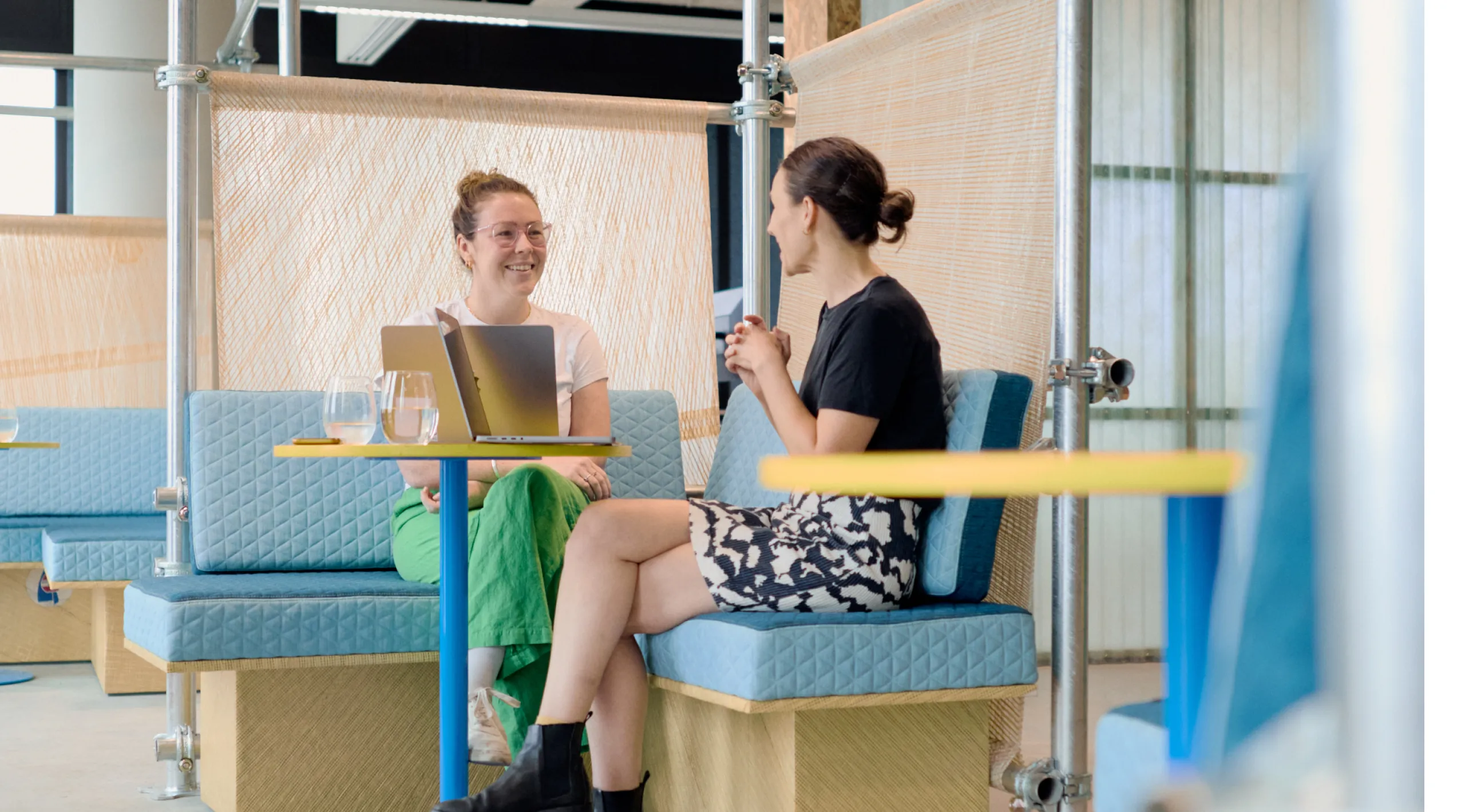
Do you have any measurement plans in place looking at the differences between a child who doesn't go through your program versus going through a year of the program versus doing the program for 10 years of their schooling?
We've done independent evaluations with the University of Melbourne, University of Adelaide, and have a PhD student at Monash University currently doing an analysis as well.
Part of our school wellbeing program is a survey from Resilient Youth Australia, which assesses the mental wellbeing and resilience of students each year. Through COVID in 2020-2021, the University of Adelaide used this survey data to compare the mental wellbeing of 83,000 students who were doing our program against 80,000 students who weren't. While they saw anxiety and depressive symptoms increase and life satisfaction decrease at non-TRP schools, anxiety and depressive symptoms stayed level at TRP schools and life satisfaction actually increased, which was really significant.
Something we're seeing through this PhD student analysis is the longer that schools are doing this program, the more impact it has, which is exciting.
That's so amazing. It’s great to be able to measure the success of the program and know what you’re doing is making a real impact.
To know that what we're doing can make a difference gives us even more drive to keep reaching.
When kids are practising gratitude, empathy and mindfulness during particularly tough moments, is that impacting their parents?
That’s a good point that links to the whole community approach.
In our school program, there are things that the students are doing in the classroom with teachers. But parents are another really important cohort for support because having that home-to-school connection is key to whatever's being taught in school, then being reinforced at home. And vice versa.
The work that we do with the general public and in workplaces can sometimes reach the parent community in other ways than just the school program. So there's a really lovely symbiotic relationship between the children, but also the adults that are influencing them and what's being modelled for them.
What has the impact been from our partnership?
Today functioning like an extension of our team rather than an external agency has been key. Learning from you all in the process as well, not just adding to our vernacular of tech terms, but learning from the brilliant approach that you have.
For a platform in its MVP stage to be used at scale this year with over 30,000 teachers in almost 1,100 schools is huge. Our audiences range from really large Prep to secondary schools through to small regional schools with a handful of students and a teacher who's also the principal and the TRP ambassador.
It’s been unbelievable in helping us create even more impact for our program. And again, I think it's laying a really strong foundation that's setting us up for future increased reach and scaled impact as well.
We were previously using an off-the-shelf platform for our teachers, which I think we implemented when we had a couple of hundred schools. And now that we're working with over 1,000 schools, we knew we needed to invest in something that was developed by teachers for teachers and fit the purpose of our program specifically.
The process of interviewing and speaking with teachers and getting their feedback at every step of that development journey was key to us feeling super confident that we had the right foundations to then build on.
There was a huge administrative burden that existed for our internal team when using our old platform. So not only has it created an even better experience for our schools and the teachers teaching our program, but also for our internal team to free them up to focus on more impactful work, which, as Head of Operations, I really see my job as enabling the rest of the team to have the best possible impact they can have. For us to be able to tick both of those really important boxes is huge.
Thanks, Maddie, we’re excited about the impact that this platform will have on kids and their resilience.
We have absolutely loved working with you and the broader team. It's felt really effortless and so easy despite being a huge product that is so complex and launching to that many people at scale.
